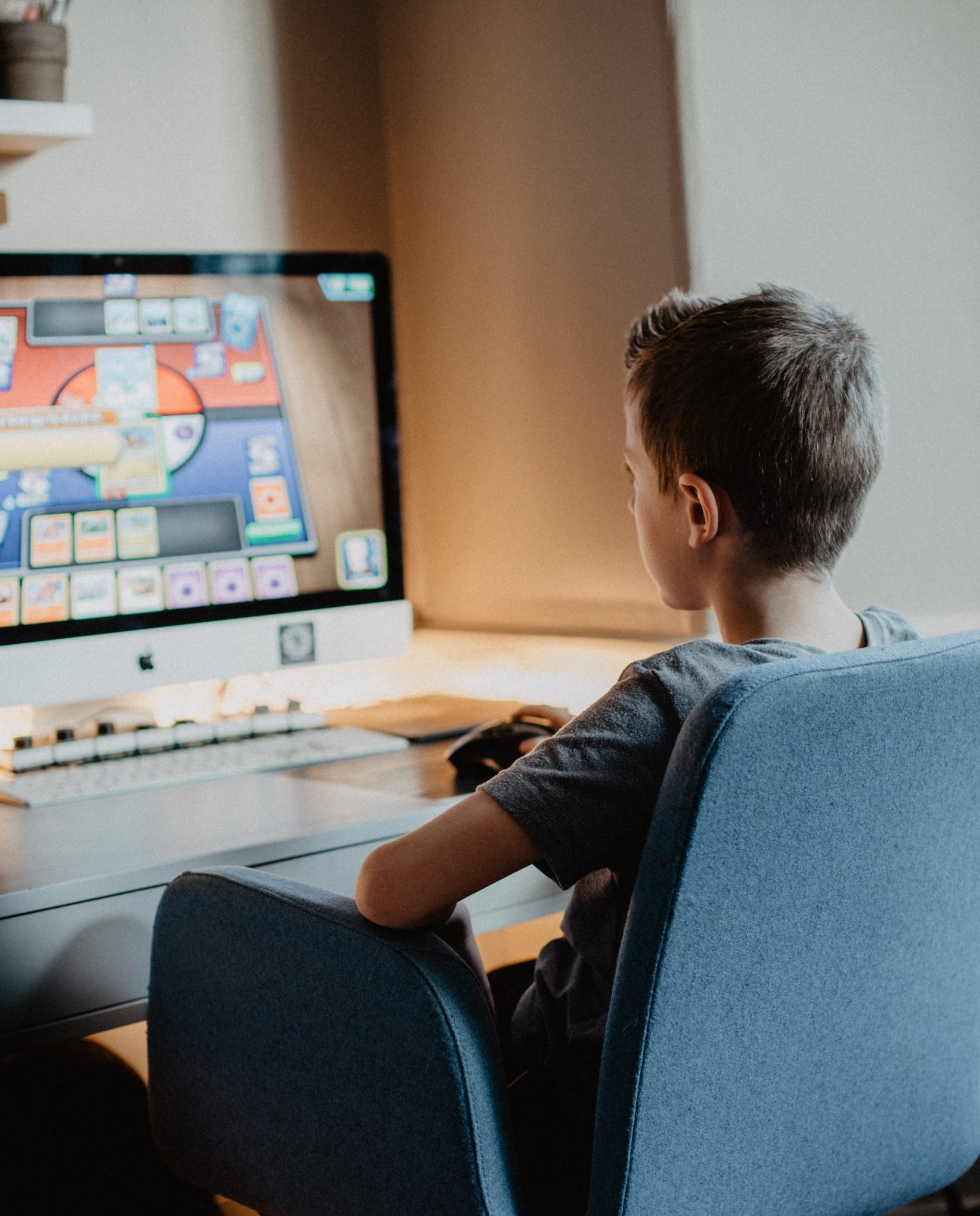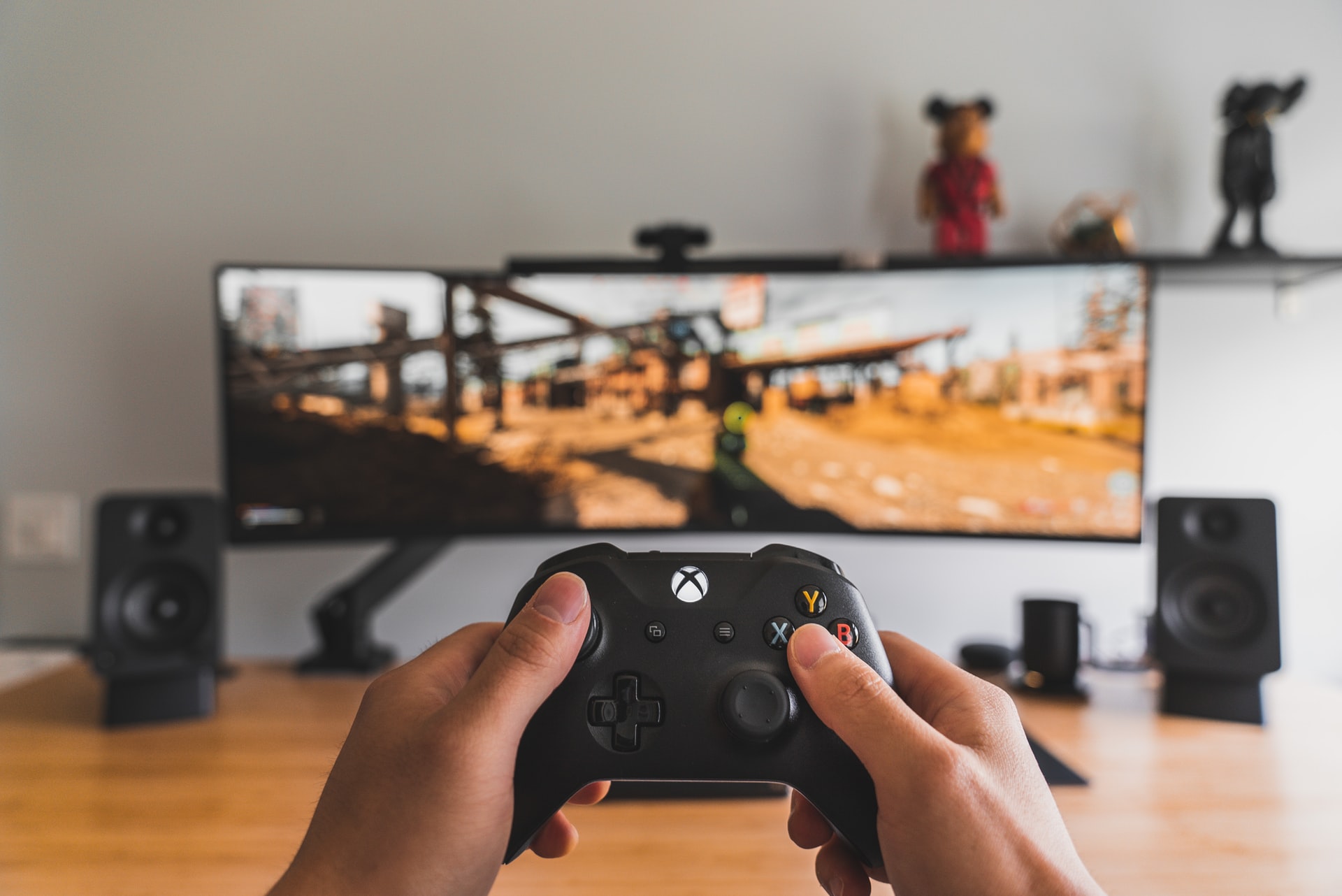
How To Promote Healthy And Social Video Game Play Amidst Pandemic
Amidst historic wildfires and a global pandemic, virtual worlds hold an understandable appeal. Yet, many parents fear that video games pose risks of their own—that these all-too enticing digital ecosystems may interfere with children’s healthy emotional, physical, and cognitive development.
Indeed, parents have struggled to manage their kid’s game time, even before COVID-19 relegated us to our homes. Now, with so much of our work and play time happening online, the challenges are greater than ever.

While overuse of video games can present a host of problems for children, balanced, mindful use of games can also promote positive social-emotional growth and maintain healthy friendships during this otherwise isolated time.
How do you know what’s appropriate for your child? And what are the warning signs that their use of video games has become problematic? Some of the world’s leading researchers and clinicians have weighed in with their advice below, and several participated in an interdisciplinary conversation and Q&A hosted by Children and Screens: Institute of Digital Media and Child Development on September 23rd.
Moderated by Yale University Child Study Center psychiatrist and neuroscientist Marc Potenza, the panel featured a fascinating discussion about the science of video games, including evidence-based advice on how parents can encourage healthy habits.

Strike a balance
Parameters around game play can start with reasonable time limits.
“Children who game more than 2 hours per day may experience adverse effects on their mental health and executive function abilities, and may feel low motivation to engage in less stimulating tasks,” say Tracy Markle, MA, LPC, and Dr. Brett Kennedy of the Digital Media Treatment and Education Center. “The more a child games, the less they engage in health-related activities, movement, time with loved ones, creative activities, and imaginary play.”
When evaluating the time a child spends gaming, it is important to consider how this compares to time spent on other activities—an approach that may be particularly useful in the context of COVID-19.
Given that we are inside and on our devices more than ever, it’s okay to relax some of your restrictions on screen use. That said, balance is still important, and parents need to model, teach, and at times insist on living a balanced life. Psychologist Edward Spector suggests working with your kids to generate lists of activities in diverse categories that are a part of a healthy lifestyle and connected to your values.
“Categories might include a list of exercise activities, intellectual activities, social activities, artistic/creative activities, or new life skill activities,” he explains. “The premise is that a healthy day involves choosing some activities from each category. If kids are gaming too much, chances are they’re not hitting all the categories adequately.”

Dr. Mark Griffiths, PhD, Distinguished Professor of Behavioral Addiction, agrees, highlighting that physical activity is essential to the health and well-being of kids.
“Children should regularly engage in outdoor activities like walking, gardening, jogging, or anything else that can be done in a safe and spatially-distanced way,” he explains. “When their kids are gaming, parents need to set time restraints, incorporate frequent breaks, and make sure that their children stretch, maintain good posture with a straight back, keep their head and neck upright, and consciously blink their eyes.”
To help kids maintain balance, Wake Forest University Department of Communication Associate Chair Marina Krcmar, PhD, recommends setting clear time limits, suggesting an hour or two daily maximum for younger kids.
“Playing video games right before bed is known to cause sleep disturbances,” she adds, “so be sure all screens are off at least 30 minutes before lights out.”
As children get older, Krcmar suggests, parents should collaborate with kids to establish boundaries, with the aim of eventually teaching children to monitor themselves.
“Although you will have to intercede a lot at first, the goal is to set life habits and gradually let them take over,” she says.

Play well with others
Parents should be attentive not just to the quantity of gaming, but also its quality. Video games have the potential to teach kids valuable social and emotional skills, particularly if they are open-ended games that allow for collaboration and building, rather than violence and destruction.
EDMO Executive Director, Eduardo Caballero, recommends signing up for a virtual gaming club, so that children can play in a moderated online environment with a trusted adult. He also encourages helping your child reflect on their gaming sessions afterward.
“You can ask them questions like, ‘Who on your team showed good collaboration skills? Was there a time you got frustrated? What did you do to overcome the challenge?’” says Caballero. “All of these things can help you bond with your child and help them recognize opportunities for their own self-growth as they play.”
“Pay attention not just to what your kids play, but also who they play with,” adds University of California, Irvine Professor of Informatics Dr. Constance Steinkuehler, PhD. “These days, for many kids, online games are one of the only ways they can spend time in joint activity with peers. Learning how to be a good friend and good sport online is sometimes only a matter of coaching, attention, and reflection.”
Parents should stay vigilant, though, as nothing can replace face-to-face social connection when it comes to combating depression and anxiety.

The new family game night
Don’t worry if you’re feeling a bit lost as to how to engage with your children via video games. A great first step is to simply be present.
“Sit with your children while they play and ask them why they like the games they like, what they enjoy about them, and what they don’t,” says Take This Research Director Dr. Rachel Kowert, PhD. “This is a great way to get a first-hand look at the kinds of games your children are playing, as well as a way to spend some quality time with them.”
Author and Nottingham Trent University Associate Psychology Professor Dr. Daria J. Kuss also suggests playing games together as a fun family activity. And if you don’t want to play, that’s okay, too!
“As an experiment, try just sitting quietly with your teen while they’re playing,” suggests Harold. S Koplewicz, MD, and Dave Anderson of the Child Mind Institute. “Wait for them to tell you about what they’re doing, and try to avoid criticizing, questioning the activity’s value, or reminding them about other important tasks. You might be surprised at the depth of their experience and at their attitude change when they feel heard and understood.”

Age matters
There are a wide variety of video games out there, designed for a wide range of maturity levels, and it’s important for parents to be aware of what kind of content their kids are accessing. Parents hoping to identify age-appropriate options can start by consulting a game’s rating.
“If your child is under the age of 13, they shouldn’t play video games rated ‘T’ for players 13 and older,” says Ohio State University Professor of Communication Brad Bushman, PhD. “If they’re under the age of 17, they shouldn’t play video games rated ‘M’ for mature players 17 and older. And if they’re under the age of 18, they shouldn’t play video games rated ‘AO’ for adults only aged 18 and older.”
Although game ratings can be useful, author and Iowa State University Distinguished Professor of Psychology Craig A. Anderson, PhD, advises that parents take these labels with a grain of salt. Rating systems, he notes, are generally run and funded by media industries rather than researchers or independent watchdogs.
“In general, age ratings work well as a lower limit guideline for appropriateness, but many games and films rated as ‘appropriate’ for teenagers and children are, in fact, inappropriate for them, mainly because of violent content,” he explains.
Anderson recommends that parents look for trailers, independent reviews, and games descriptions in order to gather as much information as possible before deciding if they’re appropriate for their child.

From treat to task
For most children, screen time has traditionally been a restricted treat. Now, the introduction of remote learning has transformed device use into a responsibility. This transformation requires a mental shift for kids, and should therefore also entail a shift in how parents approach digital media.
“For the many who had limited screen time, ‘school on computer,’ with its extensive screen time requirements, is especially demanding,” says Judy Willis, MD, M.Ed. “Guide kids and acknowledge their progress as they take more responsibility for their learning, planning, and focus on their school screen time. Encourage discussions and acknowledge the challenges of their newly flipped screen time universe.”
At the same time, games still hold a lot of appeal for children, and it’s possible for parents to harness that as a motivator for homework, reading, or chores.
“Some families make them equivalent,” says Iowa State University Child Psychology Professor Douglas Gentile, PhD. “For every half hour spent reading, for instance, kids get a half hour of gaming. This can help children begin to learn to budget their time, a skill they’ll need more and more as they grow.”
Gentile warns parents to be vigilant with this technique, though, as using games as a reinforcement can make them seem even more attractive and lessen kids’ self control.

Be mindful, not fearful
The social element of gaming can be a crucial factor contributing to video game overuse if left unchecked. This can create a worrisome cycle in which excessive gaming makes other activities less rewarding, thus leading to yet more game time.
Internet and Gaming Addiction Specialist and Child, Adolescent, and Adult Psychiatrist Clifford Sussman, MD, explains that video games, which produce instant and continuous stimulation, are considered a “high dopamine activity.”
“Over time, the brain will develop a higher tolerance to dopamine, due in part to a process called receptor down regulation, and will therefore require even more stimulation,” he explains. “This end state is described in peer-reviewed literature as ‘reward deficiency syndrome,’ which is marked by even more loss of interest in activities that are less stimulating, like schoolwork.”
Sussman points out that the region of the brain that regulates delaying gratification, the prefrontal cortex, takes more time to develop than the reward system, which means that children are especially vulnerable to this effect.

It’s important for parents to watch for warning signs of problematic gaming, such as mood changes, loss of sleep, diminished interest in other activities, lying about gaming, and refusal to stop playing.
University of Adelaide Senior Research Fellow and Clinical Psychologist Daniel King, PhD, MPsych, recommends negotiating with your kids on how gaming devices will be used, and then employing parental controls (such as content restriction, time limits, and locking the option to spend money in-game) to reinforce these limits.
One simple test for problematic behavior is to see if your child can abstain from gaming for about seven days.
“Take it as an opportunity to get all of the family out of the house and do something together,” says University of Mainz Professor Dr. Klaus Wölfling, PhD. “Choose something you, as parents, enjoy and are emotionally involved in so you can inspire your kids.”

It is also important for parents to be mindful of the language they use when speaking to their children about video game overuse.
“Be cautious about using a label such as an ‘addict,’ as these may be received as confrontational and stigmatizing, and thus may hurt your attempts to build the type of rapport needed to influence your gamer,” says Cam Adair, founder of the Video Game addiction support group Game Quitters. “Instead, focus on the behavior you are experiencing, and how that behavior can be adjusted for their overall health and well-being.”
Stetson University psychologist and video game researcher Christopher J. Ferguson, PhD notes that parents’ anxiety about games may lead them to miss some of their positive features.
“Most of our fears come from things we don’t understand,” he says, “and games can be a wonderful and positive part of many kids’ and adults’ lives.”
Finally, Jay G. Hull, PhD, Dartmouth Professor of Psychological and Brain Sciences, reminds us that video games themselves are neither inherently good nor bad. It all comes down to how we use them.
“Many games require self-control, problem-solving, willingness to learn, and collaboration with others,” he explains. “However, if you feel a game is teaching bad life lessons, ask your kids what they think, and get them to consider the ethical implications of their actions, even in a virtual world.”










Emma
It seems to me that worthy games do not need promotion. Choose leisure activities for yourself that will not only distract you from everyday life, but also bring benefits. On this site https://www.cere.ro/ you can find only reliable playgrounds for this purpose.
Klod
Before entering the game, which has the advantage of the best online gambling site. Some things you need to pay attention to is choosing a reliable online gambling site.
Amanda
It is impossible to imagine the free time of a modern child without a gadget. Educational and logic games are useful for mental development, they make you think and train your memory. Here https://ezapk.net/ you can download cool options for yourself